Telluride, Colorado, is renowned for its impressive mountain peaks and varied terrain, making it a premier destination for outdoor enthusiasts.
Discover the Breathtaking Mountain Landscape
Telluride sits nestled within the majestic San Juan Mountains, offering unparalleled skiing and snowboarding experiences across varied terrain suitable for all skill levels.
The resort boasts impressive elevation statistics and vertical drops that attract extreme sports enthusiasts from around the world.
You’ll find everything from gentle slopes for beginners to heart-pounding extreme terrain that rivals backcountry experiences, all within the boundaries of Telluride Ski Resort.
This guide will walk you through Telluride’s highest mountains, notable peaks, and diverse terrain options to help you plan your perfect mountain adventure.
The stunning mountain views and unique geographical features make Telluride not just a premier skiing destination but also a visual feast for nature lovers.
Whether you’re planning your first visit or returning to explore new areas, this comprehensive guide will help you navigate Telluride’s remarkable mountain landscape.
Discovering Telluride’s Mountain Landscape
The picturesque town of Telluride is nestled within a box canyon, surrounded by peaks over 13,000 feet high. This unique setting creates a dramatic and enclosed ski area that rivals the backcountry. As you explore Telluride, you’ll discover why it’s a favorite among skiers and nature enthusiasts alike.

The San Juan Mountain Range
Telluride is part of the San Juan Mountain Range, known for its rugged terrain and diverse geological features. The range offers an incredible experience with varied snow conditions and terrain features that enhance the skiing experience. From moderate hikes like Genevieve to challenging climbs like Palmyra Peak, the range caters to all levels of adventure seekers.
| Mountain Peak | Elevation (feet) | Difficulty Level |
|---|---|---|
| Palmyra Peak | 13,000+ | Extremely Challenging |
| Genevieve | 11,000+ | Moderate |
Telluride’s Unique Geographical Features
Telluride’s box canyon setting creates a natural amphitheater surrounded by high peaks, giving the ski area its dramatic and enclosed feeling. The town of Telluride sits at the base of the canyon at 8,750 feet, while Mountain Village is perched at 9,500 feet, creating multiple access points to the ski area. A free gondola system connects the historic town with Mountain Village, offering spectacular views of the surrounding mountains. From the summit, you can enjoy panoramic views of the surrounding peaks, including the iconic Wilson Peak.
Telluride’s Highest Mountains and Peaks
As you explore Telluride’s highest mountains and peaks, you’ll discover a world of unparalleled skiing opportunities. The town is surrounded by the majestic San Juan Mountains, offering some of the most spectacular terrain in the United States.

Palmyra Peak: The Crown Jewel
Palmyra Peak stands tall as the crown jewel of Telluride Ski Resort, reaching an impressive elevation of 13,320 feet. This peak is not only a marvel of nature but also a haven for skiers seeking thrilling experiences. With its high altitude, Palmyra Peak offers some of the best snow conditions in the region, making it a must-visit for any serious skier.
The peak’s significant elevation ensures that the snow remains dry and light, providing perfect powder for skiing and snowboarding. As part of the Telluride Ski Resort, Palmyra Peak is easily accessible via the resort’s lift system, allowing you to make the most of your skiing adventure.
Gold Hill and Other Notable Summits
Besides Palmyra Peak, Telluride is home to other notable summits such as Gold Hill. Gold Hill is known for its challenging terrain, including the infamous Gold Hill Chute, which offers expert skiers a thrilling experience. To access this epic chute, you can either take the Revelation Bowl Lift or traverse across the top of Little Rose and Andy’s Gold.
Other summits in the area offer a range of skiing experiences, from gentle groomers to challenging off-piste terrain. The varied landscape ensures that there’s something for every skill level, making Telluride Ski Resort a versatile destination for skiers and snowboarders.
Elevation and Vertical Drop Statistics
Telluride Ski Resort boasts impressive elevation and vertical drop statistics. The resort’s base elevation is 8,750 feet in the town of Telluride and 9,500 feet in Mountain Village. The maximum elevation at Palmyra Peak is 13,320 feet, resulting in a vertical drop of 4,425 feet from the peak to the town. This significant drop offers some of the longest continuous runs in the United States.
The main ski area spans from 8,750 feet to 12,570 feet, providing over 3,800 feet of lift-served vertical drop. The high elevation contributes to an average annual snowfall of 280 inches, ensuring excellent snow conditions throughout the skiing season.
Exploring Telluride’s Extreme Terrain Areas
For those seeking adventure, Telluride’s extreme terrain is a must-visit destination. Telluride Ski Resort offers a variety of extreme terrain areas that cater to different skill levels and preferences.
Black Iron Bowl
Black Iron Bowl is one of Telluride’s most challenging terrain areas, known for its steep slopes and deep powder. Skiers and snowboarders can access this area via a designated trail, and it’s recommended for expert skiers due to its difficult terrain.
Palmyra Peak Terrain
Palmyra Peak Terrain offers a unique skiing experience with its varied terrain and breathtaking views. The area is accessible via a lift, making it convenient for skiers to access the slopes. With its mix of groomed trails and challenging terrain, Palmyra Peak is a favorite among locals and visitors alike.

Gold Hill Chutes
The Gold Hill Chutes are a thrilling terrain area within Telluride Ski Resort, known for their narrow, chute-like trails and challenging skiing experience. These chutes are designed for expert skiers looking for a thrilling adventure.
Bald Mountain
Bald Mountain is a local favorite area within Telluride Ski Area, accessible via an access gate located on Upper Galloping Goose in the Lift 12 area. The area features signature runs including Jackpot and Audrey, known for holding some of the best and longest-lasting powder stashes on the mountain. Accessing Bald Mountain requires a moderate hike of approximately 20-25 minutes. From the summit, you can enjoy a unique view overlooking the historic mining town of Alta. The gate to Bald Mountain closes promptly at 2:00 p.m. daily during the ski season, so plan your visit accordingly.
| Terrain Area | Access | Skill Level |
|---|---|---|
| Black Iron Bowl | Designated trail | Expert |
| Palmyra Peak Terrain | Lift access | Intermediate to Expert |
| Gold Hill Chutes | Lift access | Expert |
| Bald Mountain | Access gate via Lift 12 | Intermediate to Expert |
Telluride’s extreme terrain areas offer a diverse range of skiing experiences, from challenging chutes to expansive bowls. Whether you’re an expert skier or looking to push your limits, Telluride has something for everyone. Be sure to check the access times and plan your day accordingly to make the most of your visit.
Telluride’s Terrain Parks for All Skill Levels
The mountain village of Telluride is home to a variety of terrain parks that cater to all skill levels, ensuring that every visitor can enjoy the thrill of skiing or snowboarding.
Ute Park: Beginner to Intermediate Terrain
Ute Park is designed for those just starting out or looking to improve their skills. With a range of features suitable for beginners and intermediate riders, it’s the perfect place to build confidence on the slopes. The park offers a gentle learning curve, allowing you to progress at your own pace.
Hoot Brown Intermediate Terrain Park
For those looking to step up their game, Hoot Brown Intermediate Terrain Park provides an exciting challenge. With a variety of features, including rails and jumps, this park is ideal for intermediate riders looking to hone their skills. You’ll find it an exhilarating experience as you navigate through the park’s diverse terrain.
Hoot Brown Advanced Terrain Park
The Hoot Brown Advanced Terrain Park is a haven for advanced and professional riders. With around 25 features, including a progressive jump line and signature rails like the Pick Ax Rail, this park is all about pushing your limits. Start with the whale tail, hit the Rainbow Rail, tap the barrel, nail the jump line, and finish with the Pick Ax Rail. The park’s design encourages flow and progression, allowing you to link features together in creative lines. You can access the park via the Village Express Lift or Town Gondola. Don’t forget to spin the Hoot Brown statue at the entrance, a tradition that honors a local skiing legend.
- The Hoot Brown Advanced Terrain Park features approximately 25 expert-level features, including a progressive jump line with jumps ranging from 25′ to 50′.
- Signature features include the Pick Ax Rail, C Box, Hitching Post, Whale Tail, and Rainbow Rails, providing a comprehensive playground for technical freestyle skiing and snowboarding.
- With Mt. Wilson as a backdrop, the park offers exceptional photo and video opportunities to capture your best tricks.

Navigating Telluride, Colorado: Highest Mountains, Peaks, and Terrain
Navigating Telluride’s mountains and terrain requires knowledge of its highest peaks and the access points that lead to them. Understanding the layout of the land and the infrastructure in place to support exploration is key to making the most of your visit.
Hiking Times and Access Points
When venturing into Telluride’s mountains, it’s essential to know the estimated hiking times and access points. From the top of Lift12 (Prospect Lift), hikes to various destinations have the following estimated times: Genevieve, 5-10 minutes; Lakeview, 20-25 minutes; and Mountain Quail, 30-45 minutes. Other notable hikes include Palmyra Peak, which takes approximately 1-1.5 hours past Black Iron Bowl, and Gold Hill Chutes, with an estimated time of 20-30 minutes.
| Destination | Estimated Hike Time |
|---|---|
| Genevieve | 5-10 minutes |
| Lakeview | 20-25 minutes |
| Mountain Quail | 30-45 minutes |
| Palmyra Peak | 1-1.5 hours |
| Gold Hill Chutes | 20-30 minutes |
Lift Systems and Mountain Access
Telluride Ski Resort’s extensive lift system, comprising 17 lifts, provides comprehensive access to the mountain’s diverse terrain. The Village Express (Lift4) serves as a central artery from Mountain Village, offering access to various terrains, including the Hoot Brown Terrain Parks. The Prospect Lift (Lift12) is crucial for accessing extreme terrain, while the Revelation Lift (Lift15) provides access to Revelation Bowl and the Gold Hill Chutes. The free gondola system connects the town of Telluride with Mountain Village, serving as both transportation and a lift for skiing terrain.

Safety Tips and Best Practices for Telluride’s Mountain Terrain
As you explore Telluride’s majestic mountain terrain, it’s crucial to prioritize your safety above all else. The upper mountain areas of Telluride Ski Area contain some of the steepest, most challenging terrain found anywhere in the world, designated for expert skiers only.
To ensure a safe and enjoyable experience, always check current conditions and terrain status at the start of each ski day. Be aware that weather conditions can change rapidly at high elevations, so check forecasts before heading to the top of the mountain and be prepared to adjust your plans accordingly.
- Respect all terrain closures and boundary markers—they exist for your safety.
- Know your limits and ski within your ability level.
- Under Colorado law, skiers assume the risk of inherent dangers in the sport.
By following these guidelines and being mindful of the terrain, you can have a safe and exhilarating experience in Telluride. Make sure to plan your day according to the gate closure times, especially for areas like Bald Mountain, which closes at 2:00 p.m. during the season.
—
The above is subject to change.
Check back often to TRAVEL.COM for the latest travel tips and deals.

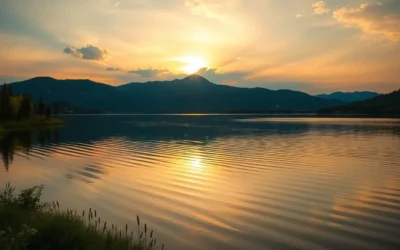
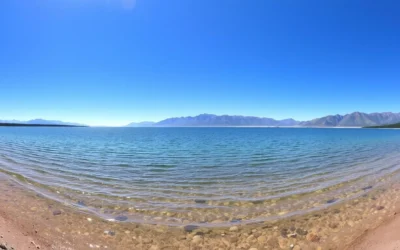
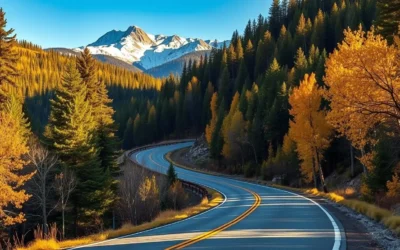
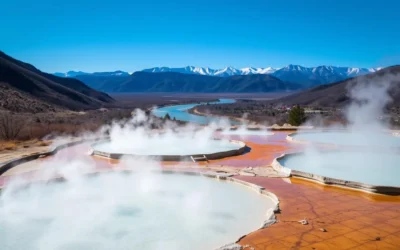
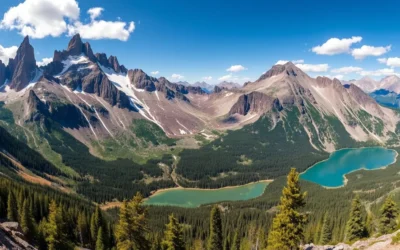
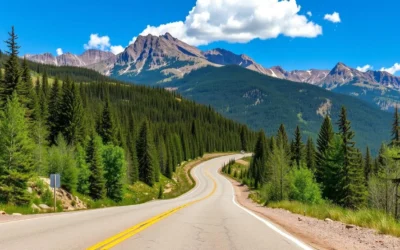
0 Comments